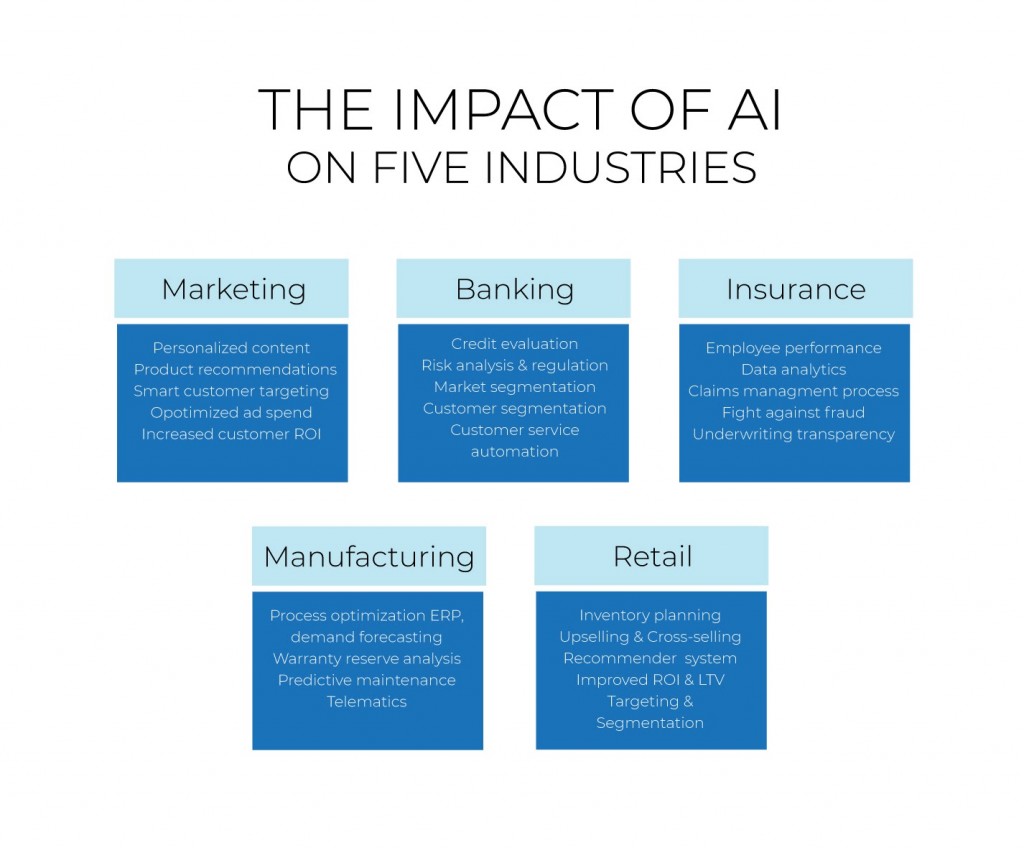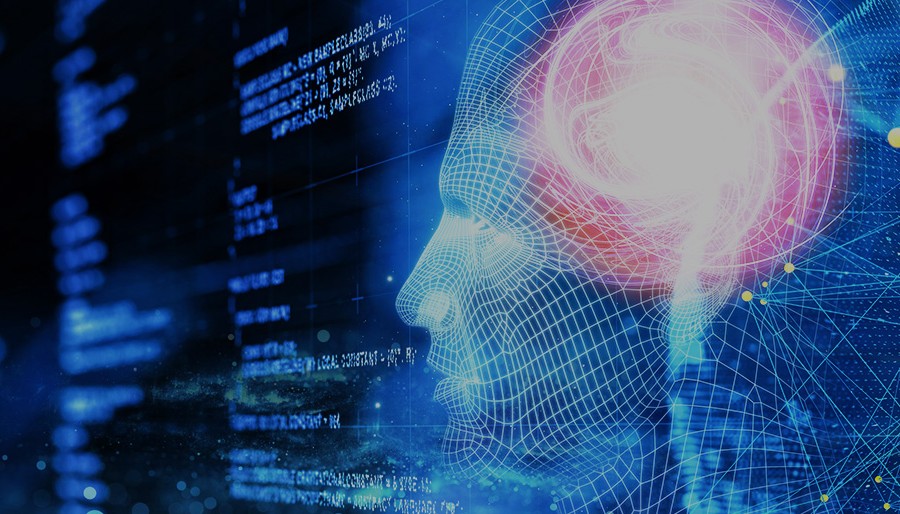
Artificial intelligence (AI) technologies such as natural language processing (NLP), predictive analytics, content recognition, machine learning, and recommender systems - combined with various analytics tools and approaches - help marketing professionals make more informed decisions faster and ultimately reinvent the entire marketing function. Nearly 63 percent of CMOs in the United States are looking at reinventing their approach to digital marketing and customer analytics with advanced AI development solutions, according to IBM Institute for Business Value.
AI development and marketing disruption
There's a logical sequence for how AI development can lead digital marketing disruption. It starts with basic automation tools to handle routine, predictable tasks like email marketing and content syndication (leading to reduced costs and improved efficiency), and to boost the performance of a given marketing campaign. Marketers can use AI tools such as recommender systems and content recognition to automate content-related tasks (for example, moderating user-generated content and creating personalized advertising campaigns).
After automating repetitive processes, CMOs and marketing departments can start leveraging more AI technologies such as NLP and predictive analytics to understand customer data, make accurate predictions about what will happen according to a variety of factors, and plan for various scenarios based on deep learning that makes the "magic" behind the scenes.
In other words, digital marketing is getting transformed by AI technologies starting with automation and personalization and proceeding through more accurate predictive analytics and natural language understanding.
There are at least three ways of how the development of artificial intelligence systems helps marketers improve their approach to executing the digital marketing function. Let's look at these below.
1. Intelligent campaign automation
AI-enabled marketing involves using insight-driven campaign automation systems that put the power of data insights in the hands of a marketer to run and optimize digital campaigns at scale.
NLP and machine learning use behavioral data behind the scenes to help design programmatic omnichannel campaigns across mobile, web, email, SMS, social, and more.
AI systems let you create custom messages and advertisements that deliver engaging customer journeys, ensuring higher customer loyalty and conversion as compared to traditional campaign management tools. Thanks to leveraging AI-powered insights and capabilities, campaign automation connects your business with your prospective customers, when and where you expect them. As a marketer, you do your job faster while keeping your focus creative and agile.
2. AI-assisted CX analytics
By discovering, collecting, and analyzing behavioral data, AI helps marketers make smarter and faster decisions based on insights into customers across various marketing channels.
Customer experience (CX) analytics provides an ability to examine digital marketing tactics and strategies to figure out what's working well and what's not.
AI systems improve this ability by giving clarity to customer journeys and their effectiveness by interpreting the actual CX across several or more digital channels. CX analytics feeds off of enormous datasets - the more customer data is available to examine, the more accurate the predictions the AI can make.
Predictive analytics and machine learning are at the heart of any AI-enabled system that integrates CX analytics. IBM Watson is an excellent example of how machines help digital marketers discover obstacles their customers are currently experiencing and generate actionable insights.
3. Personalized ads and content delivery
Prospects will drop even the most appealing ad message if it is not targeted and personalized. Why? Because advertisement alone is never the solution. Digital advertising - supported by a mechanism for deeply targeted and personalized customer journeys - is what makes the difference for achieving marketing success.
AI-enabled solutions like recommendation engines and deep learning give marketers the tools they need to reach out to the right audience and create personalized experiences they love.
Personalization improves lead generation and customer experiences, making it easier for digital marketers to walk through each interaction and deliver the right content to every prospect in the context of their past interactions with the brand.
Two priorities to keep up with AI marketing trends
Every organization will have a different approach to addressing the challenges around AI development and marketing disruption, based on the industry it works in and the level of its digital maturity. But you're more likely to succeed if you build your marketing activity around four priorities, as listed below.
Priority #1. Set clear goals for desired outcomes and benefits.
For many businesses, AI marketing development and adoption will come together with broader digital transformation goals.
To help you set those goals in your organization, here below are four metrics that track and assess the impact of artificial intelligence on your digital marketing strategy:
- Efficient - performing marketing activity faster and at lower costs
- Effective - performing that activity better
- Expandable - connecting with target audiences through various marketing channels
- Innovative - finding new ways to create and deliver value
Priority #2. Directly involve the right IT partner like DIGI117 in developing and implementing AI solutions for your marketing team.
As part of your digital transformation strategy, IT consulting can be a practical approach to adopt AI systems into your marketing function. You can delegate this job to an IT partner like DIGI117 that will take a hands-on role in developing and deploying an AI-enabled tool kit that uses natural language processing, deep learning, and recommender system for intelligent automation and CX analytics.
At DIGI117, we listen to our client's demands and create a solution that resonates and brings value. We provide custom AI development and data integration services for small-to-mid-sized companies that want to enhance their marketing functions through AI-enabled campaign automation, predictive analytics, and machine learning.
AI impact on top-five sectors
Apart from digital marketing, what industries will be most impacted by artificial intelligence in the coming years?
We will likely see the most significant impact in data-intensive sectors that depend on automation and prediction, like removing repetitive processes and predicting future scenarios based on historical information. Below are the top-five sectors:
- Manufacturing
- Retail
- Marketing
- Banking
- Insurance

Artificial intelligence can identify and remove deficiencies in supply chains, automate manual processes, accelerate data processing and analysis, improve project management and product delivery, create engaging customer experiences, avoid data leakages, prevent fraud and cyber threats, and more.
Whether you are a marketer, banker, manufacturer, insurance agency or retailer, you can use basic automation tools to improve the marketing function in terms of speed, accuracy, and costs. But when you begin using AI-assisted solutions, you shift from descriptive to predictive tools that become a real source of marketing intelligence in your company.
Today this shift happens faster than it was in the past. The number one priority of CMOs and decision-makers is to create and adopt a truly modern finance function capable of using artificial intelligence for automation, analytics and personalization.








